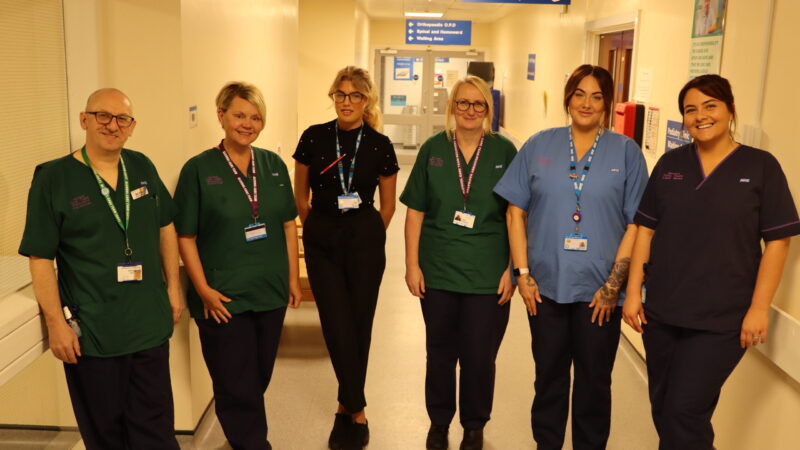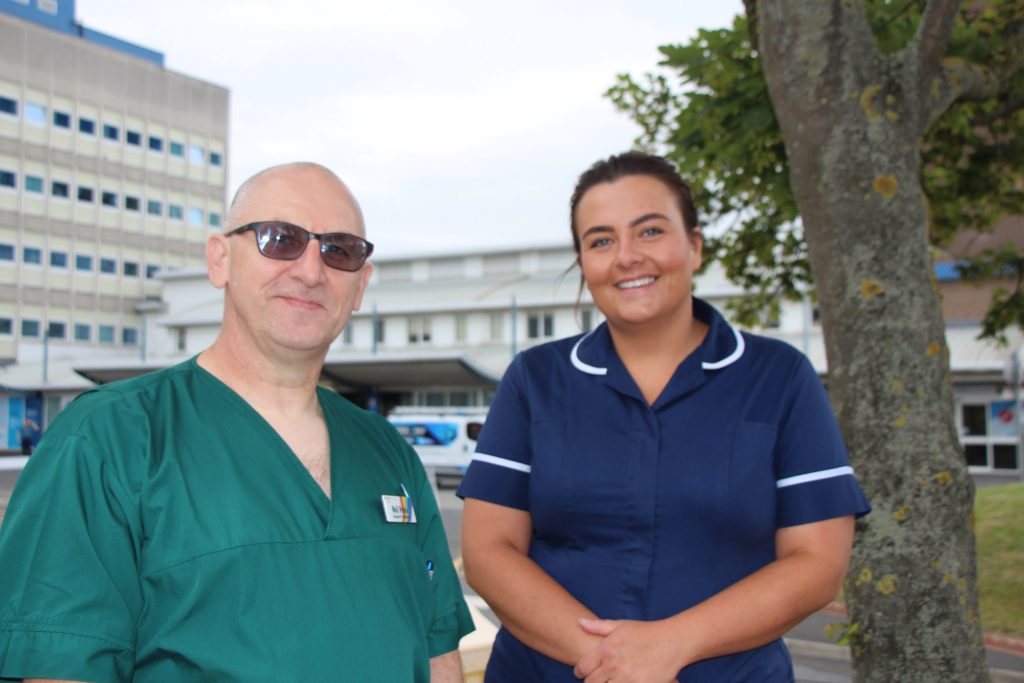
An NHS team helping people with alcohol addiction has shared some of its successes so far – a year after the service launched.
Over the last 12 months, the alcohol care team at North Tees and Hartlepool NHS Foundation Trust has assessed more than 1,000 people.
All of these patients were asked if they would like community alcohol support, with more than half of these people accepting a referral.
Over this period, the team have helped prevent more than 100 people being admitted to hospital for treatment.
The service has also started weekly fibroscan clinics to detect for any early signs of liver disease and have scanned more than 250 patients since January with ongoing referrals to the specialist liver team where needed.
Hayley Douglas, alcohol lead nurse, said: “The team was created to help those patients in our care for a variety of different reasons who may have been overlooked for their alcohol consumption.

“Over this time, we have certainly helped achieve this, initially through our alcohol assessment, which our own staff have been very supportive with.”
The initial assessment involves a few simple questions known as Audit C which help staff decide if a referral to the alcohol care team is needed.
Audit C creates a score – ranging from low risk to possible dependence on alcohol – and is followed up further by the team if appropriate.
Hayley continued: “We said from the very start that alcohol must be treated as a disease, it isn’t a choice.
“Supporting patients to reduce alcohol intake and with the withdrawal process and beyond is absolutely vital.
“Other initiative we have had such as the alcoholics anonymous (AA) sessions within the University Hospital of North Tees have been very helpful.
“After leaving hospital we have also supported people with referrals to our partners in community recovery support services across the region.
“Social care needs have also been looked at because issues in people’s lives such as debt, mental health and housing can have an impact.
“We also work closely with the Trust’s tobacco team to support patients withdrawals and offer ongoing care once patients leave our care in hospital.
“We are really pleased with progress made over the last year and have future ambitions to develop a new pathway for people with alcohol related brain damage with our partnering health trust.
“We are also looking to expand the team and work with local authorities to also help patients with other substance misuse issues.”
The achievements of the team comes in the same month as the government released new figures into the effect alcohol dependence has on the health service.
In the figures, the number of admissions to hospital where the primary diagnosis was alcoholic liver disease rose by 11.7% in the last year – with the North East having the highest rate of admissions nationally.
The rate of hospital admissions for alcoholic liver disease is also twice as high in males nationally.
Patient feedback
A woman who was admitted to the University Hospital of North Tees for physical issues related to alcohol misuse, has praised the service for their help.
She said: “Once my health began to slowly improve Hayley and Jess from the team visited me on the ward.
“Both ladies were very caring and reassuring and it was a relief knowing that they were advocating for me. The ladies (and a nice chap in a green uniform) visited me regularly which made a huge difference. They made arrangements with the ward so my husband and family could visit around their work commitments and child care.
“They spoke to doctors and I was prescribed medication to aid sleep as this was a significant issue for me prior to hospital admission, and the medication continued with my GP on discharge.
“On discharge I was contacted by a lovely lady who arranged dates for counselling sessions which I have attended. I was also contacted by the community drug and alcohol team who provided me with medication to help me to abstain from alcohol along with regular face-to-face and telephone support.
“In hospital Hayley provided me with a book and wrote everything that we had spoke about and the plan for when I left hospital. By doing this simple gesture I felt included in my care, I was able to look at the plan while in hospital and also I would write some things I could do upon discharge which allowed me to feel in control. If this was left to myself to self-refer to the after care services, I am not sure if I would have been well enough and therefore not motivated to make arrangements and accept help. Hayley and Jess really did give me hope that I could become well again, to reconnect with my career, and enjoy life to the full again. I was even given information and encouraged to look into benefits which I may be entitled to should I need to remain off work for a prolonged time, something I would never have thought of.
“I have engaged with the plan that Hayley had arranged. I have been abstinent from alcohol and cannot express in words the gratitude I have for the team who played a key role in helping me with my achievements. I have no desire to use any substances, I am now working again as a Nurse and enjoying life with my family.”